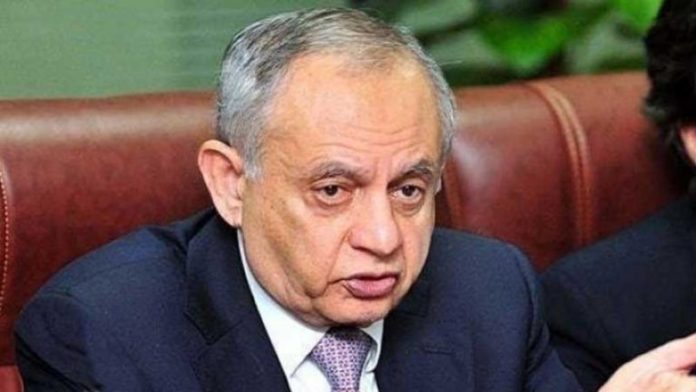LAHORE: Pakistan’s export diversification has improved considerably during the last three years, which would help enhance exports, a senior official said on Saturday.
Speaking at a meeting at the Lahore Chamber of Commerce and Industry (LCCI), Adviser to the Prime Minister on Commerce and Investment Abdul Razak Dawood said that the market and product diversification was the only way to jack-up exports.
LCCI president Mian Nauman Kabir, senior vice president Mian Rehman Aziz Chan and vice president Haris Ateeq also spoke on the occasion.
Dawood said: “Our exports of traditional items to non-traditional markets has increased 60 per cent, while the export of non-traditional items to non-traditional markets has gone up 77 per cent during the last three years.”
The government would introduce the policy of giving extra incentives on the exports of non-traditional products., he said.
“The government is also going to sign a TIR convention with Afghanistan for free movement of trucks to the Central Asian Republics,” he said, adding: “We are targeting Central Asian Republics to boost national exports.”
The government is also going to implement the “Look Africa Policy” and an official delegation will visit Nigeria next month, he said.
The adviser said the Temporary Economic Refinance Facility (TERF) of the State Bank of Pakistan for SMEs and other targeted sectors would be restored, adding that the engineering and iron and steel sectors would be the next area of focus for tariff rationalisation.
To a question, Dawood said that the International Monetary Fund (IMF) was the major hurdle in sales tax rate reduction. The IMF has demanded imposition of regulatory duty on everything.
“As far as [the] GSP Plus status and basmati rice are concerned, the things are well under control,” he said, adding that though there were challenges, these were far less than the last three years.
The import cost has increased due to inflation at the international level, the adviser said, adding:. “Oil imports have increased in terms of value.”
He promised to give LCCI representation in the Export Development Fund Board.
Mian Nauman Kabir said that the LCCI had always advocated effective utilisation of export development fund with due consultation with the stakeholders.
The steep rise in the trade deficit should be checked. In the first quarter of the current financial year (July-September 2021), the trade deficit stood at $11.66 billion that is 100.6 per cent higher, compared with the same period of the last year. This recent increase in the trade deficit has played a part in the devaluation of the rupee, he said.
“We urge the government to immediately implement a currency swap with China from where our imports amount to around $13 billion. The Customs and regulatory duties on luxury and non-essential items should be increased for managing import bill,” he said.
The exports were heavily concentrated in a few product lines, as textiles, rice and leather account for almost 70 per cent of exports.
“There is a need to diversify our exports, especially focusing on potential sectors such as pharmaceuticals, engineering and halal food. These potential sectors should be zero-rated for increasing export competitiveness,”, the Kabir said.
The LCCI president stressed the need for making sincere efforts for exploring new markets, adding that destinations of around 65 per cent of the exports were 10 countries.
“For enhancing exports to untapped potential markets like Africa, Russia and Central Asia, formal banking channels should be established on a priority basis. This issue has already been raised with the SBP [State Bank of Pakistan] and [the] Ministry of Commerce. We appreciate the government for reducing duties on many raw material lines in the last couple of years,” he said, adding that the process of tariff rationalisation should continue.
